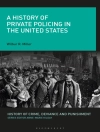Oral history brings the past to life through personal and plays an important role not only in the culture of remembrance. In dealing with aspects of contemporary history, methodological knowledge of oral history is becoming increasingly relevant. Written in clear language, this volume contains step-by-step instructions, detailed advice, checklists and exercises to help teachers convey the concept of oral history. It offers teachers a useful toolkit for teaching methodological grounding, practical skills and abilities, and highlights the social significance of oral history, its challenges and potential.
Mục lục
1. Introduction
2. Location
2.1 Definition of oral history
2.2 Aims: from preliminary concepts to historical consciousness
2.3 Competences, methods, teaching formats
3. Conceptual foundations and starting points
3.1 Oral tradition of our time
3.2 Memory, remembrance and witnessing
3.3 Research interest and epistemological value
3.4 Legal and ethical aspects
4. Oral history practice
4.1 Preparing for the interviews
4.2 Conducting the interviews
4.3 Follow-up and writing up of the interviews
4.4 Analysis of the interviews
4.5 Challenges in the evaluation process
4.6 Archiving the documents
4.7 Secondary analysis
5. Concluding remarks
6. Resources
6.1 Index of oral history collections
6.2 Bibliography
Giới thiệu về tác giả
PD Dr Felicitas Söhner is a research associate at the Centre for Health and Society at Heinrich Heine University Düsseldorf. She works in research and teaching at the Department of History, Theory and Ethics of Medicine. Main areas of work: Oral history, medical and social history of the 20th and 21st centuries, European culture of memory and its biographical treatment.












